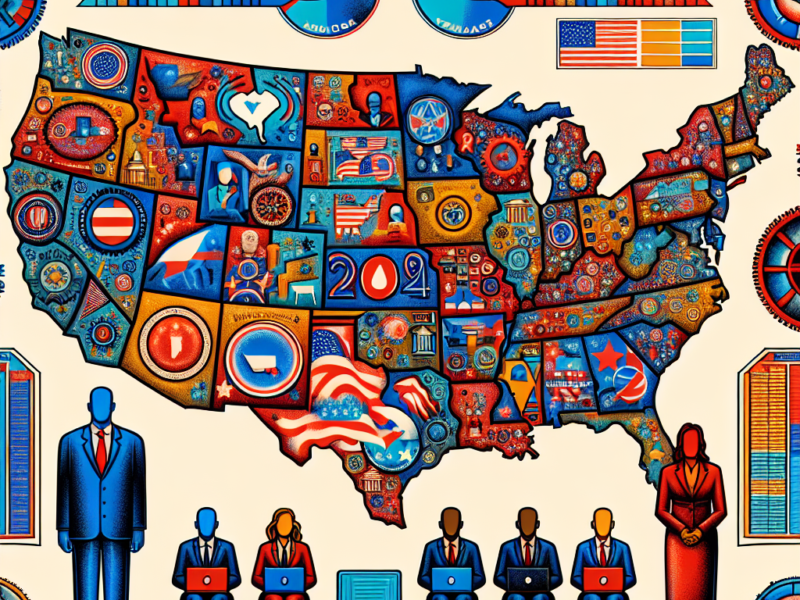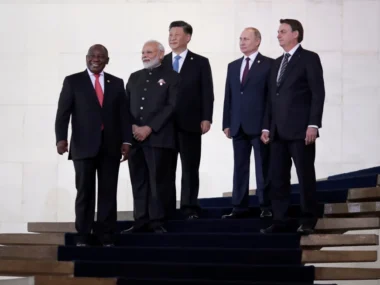2024 Elections: A Deep Dive into the Candidates Shaping America’s Future
As America gears up for the 2024 elections, the political landscape is characterized by a diverse array of candidates vying for the presidency and various other key positions. This election cycle promises to be one of the most pivotal in recent history, impacting the nation’s direction on issues ranging from healthcare and climate change to economic policy and foreign relations. Let’s take a closer look at the primary candidates and what they represent as they aim to shape America’s future.
The Democratic Contenders
Joe Biden
Current President Joe Biden is seeking re-election, building upon his record over the past four years. His campaign emphasizes continuity and the need to build on the progress made in economic recovery, infrastructure, and international relations. Biden’s administration has been marked by significant spending programs aimed at addressing unemployment and climate change, and he continues to advocate for policies that promote social equity and healthcare reform. His challenge will be to motivate a base that has become increasingly skeptical about the speed of change and the state of the economy.
Marianne Williamson
Author and activist Marianne Williamson is also in the race, advocating for a transformational approach to leadership that emphasizes love and compassion in politics. Williamson’s campaign revolves around progressive policies, including universal healthcare, a Green New Deal, and wealth redistribution strategies such as a proposed "wealth tax." Her rhetoric challenges the status quo and appeals to voters disenchanted with traditional political paradigms.
The Republican Contenders
Donald Trump
Former President Donald Trump is making another bid for the White House, leveraging his established base and focusing on issues of national security, immigration, and a strong economy. Trump’s campaign is characterized by a combination of populist rhetoric and a promise to restore “America First” policies. His critics, however, cite ongoing legal challenges and controversies from his last administration as potential liabilities. Trump’s ability to unify the party and appeal to moderate voters remains to be seen as the primaries unfold.
Ron DeSantis
Florida Governor Ron DeSantis emerges as a formidable contender within the Republican field, positioning himself as a staunch advocate for conservative values and policies. DeSantis has gained national attention for his handling of COVID-19 in Florida and for pushing legislation that opposes critical race theory and LGBTQ+ discussions in schools. His platform focuses on tax cuts, deregulation, and education reform, targeting both traditional conservatives and newer factions within the party.
Nikki Haley
Former U.N. Ambassador Nikki Haley offers a fresh perspective and appeals to a more moderate Republican base. Emphasizing her foreign policy experience and strong stance on national security, Haley advocates for a balanced approach to governance—combining fiscal responsibility with social compassion. Her candidacy seeks to bridge divides within the party while attracting female and moderate voters who may feel alienated by more extreme candidates.
Third-Party and Independent Candidates
With discontent growing around the traditional two-party system, several third-party candidates are also entering the race. Notable figures include Cornel West, representing the Green Party with a focus on social justice and environmental sustainability, and Robert F. Kennedy Jr., who is running as an independent. Their platforms appeal to voters seeking alternatives that align more closely with their values but often face the challenge of being overshadowed in mainstream discourse.
Key Issues at the Forefront
As candidates outline their platforms, several key issues are likely to dominate the conversation in the lead-up to the election:
-
Economic Recovery: With inflation concerns, rising interest rates, and ongoing supply chain issues, candidates must articulate clear economic strategies to ensure sustainable growth and address the financial pressures facing American families.
-
Healthcare: The COVID-19 pandemic has intensified focus on healthcare systems, making access and affordability central issues. Candidates will need robust proposals to address these concerns, whether through expanding existing systems or introducing new frameworks.
-
Climate Change: Environmental issues remain crucial, with many voters expecting actionable plans against climate change. Candidates’ approaches to energy policy, regulation, and international agreements will be closely scrutinized.
-
Social Justice: Movements advocating for racial equality, LGBTQ+ rights, and gender equity continue to shape the political landscape. Candidates will need to articulate their positions clearly to resonate with younger voters and progressive demographics.
- Foreign Policy: Given the evolving geopolitical landscape, particularly concerning China, Russia, and the Middle East, candidates will need to present coherent foreign policy strategies that reflect both national security interests and a commitment to human rights.
Conclusion
As the 2024 elections approach, the candidates representing America’s future are preparing to engage in a lively and potentially contentious campaign season. Voters will have the opportunity to weigh their options carefully, considering not only the candidates’ policies but also their ability to unify and address the multifaceted challenges facing the nation. Regardless of political affiliation, the decisions made in this election will undoubtedly influence the trajectory of the United States for years to come, making it imperative for citizens to stay informed and engaged in the electoral process.











